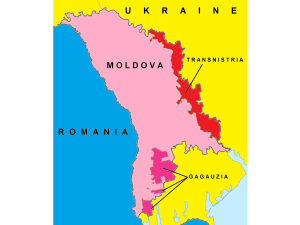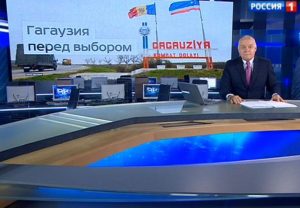The 125,000 ethnic Gagauz who live in southeastern Moldova seldom receive much press in their own right except for the fact that they are a rare Turkic people who are mostly Orthodox Christians. But they do attract broader attention when they become part of Russia’s geopolitical struggle with Türkiye. Similarly, the Gagauz turn into an object of greater scrutiny when debates become more heated regarding the Moldovan central government’s possible plans to retake Russian-controlled Transnistria or integrate with Romania and the West.
And when all of those issues suddenly come together, as they have at various points since 1991, Moscow pulls out all the stops to use this nationality to promote its own interests. One of those times is now, and Moscow’s actions regarding this numerically small people are likely to have an impact not only on its traditional targets, Chisinau and Ankara, but on neighboring Kyiv as well.

- First, Moscow wants to counter the pro-Western president of Moldova, Maia Sandu, and derail her hopes to recover control over Transnistria (Nezavisimaya Gazeta, January 29, 2019).
- Second, it wants to discourage Kyiv from supporting her by signaling, as it has earlier, the way the Russian authorities might exploit Donbas in Ukraine as they are using the Gagauz in Moldova (DS News, July 14, 2016).
- Third, it seeks to counter Turkish influence on the Gagauz, given that Ankara has made clear that its vision of pan-Turkism is about a union of Turkic peoples and not just Turkic states (Ritm Eurasia, January 11, 2021; Novaya Gazeta, December 19, 2020).

For the first time, Gagauzia’s bashkan, as the head of that autonomous region is known, was not included—an insult to the Gagauz and its leaders and one that suggests Chisinau under Sandu is prepared to ignore the pro-Russian feelings of this minority.
Gagauzia – object lesson for Ukraine on how a ‘reintegrated’ region gives Moscow leverage[/boxright] Because of these sentiments, the Gagauz have repeatedly voted for Moldovan presidential candidates they view as most pro-Russian and, therefore, most favorable to themselves.
In the last presidential election, the pro-Moscow incumbent, Igor Dodon, received 84.35 percent of Gagauz votes, while Sandu, perceived as pro-Western and anti-Russian, received only 2.05 percent.[/box] Possibly because of that, Sandu has largely given up the pro-Gagauz positions she displayed before becoming president. And now, with her decision to drop Gagauzia from representation in the Moldovan Security Council, she seems set to move even further away from them. Kiselyov suggests Sandu may possibly adopt the language of Moldovan nationalists who favor union with Romania and who sometimes refer to the Russians in Transnistria as “occupiers” and the Gagauz as “separatists.” Such comments, if they go unchecked, could become self-fulfilling prophecies, Kiselyov implies; and at a minimum, they mean Russia will have to work with both Transnistria and Gagauzia to restrain Sandu and keep Moldova in Moscow’s orbit (Ritm Eurasia, March 15).
The Russian government’s reliance on Transnistria for leverage against Sandu has long been recognized and continues to this day. Kiselyov’s article strongly suggests that Moscow is planning to again put Gagauzia in play against Chisinau, alongside the Russian-occupied exclave. It will not rely on the presence of Russian troops as it does in Transnistria but rather play up pro-Russian feelings that create new political problems for Sandu and her pro-Western policies. Such actions could force Moldova’s president to back down over her decision to exclude Gagauzia from representation on the Security Council; but if she does, neither the Gagauz nor Moscow will likely view that alone as enough. Instead, they will work together to demand even more.
Read more:
- Russian diplomats Chisinau expelled reportedly recruited Gagauz to fight in Ukraine (2017)
- Tatarstan’s efforts to help Gagauz de-Russify outrage some in Moscow (2016)
- Is Moldova’s apparent defeat Kremlin’s blueprint for Ukraine? (2016)
- Moscow overplayed its hand in Moldova and undermined Gagauz vote (2015)
- Moldova officials: Gagauz election and its pro-Moscow outcome may not be legitimate (2015)
- Moldova: Gagauz leaders “more Russian than Gagauz” (2014)
- Conflict conservation in Ukraine’s east follows the Transnistria model
- Bessarabia’s ‘ethnographic Harlequin’ in a regional perspective
- Stages of Russian occupation in a nutshell

